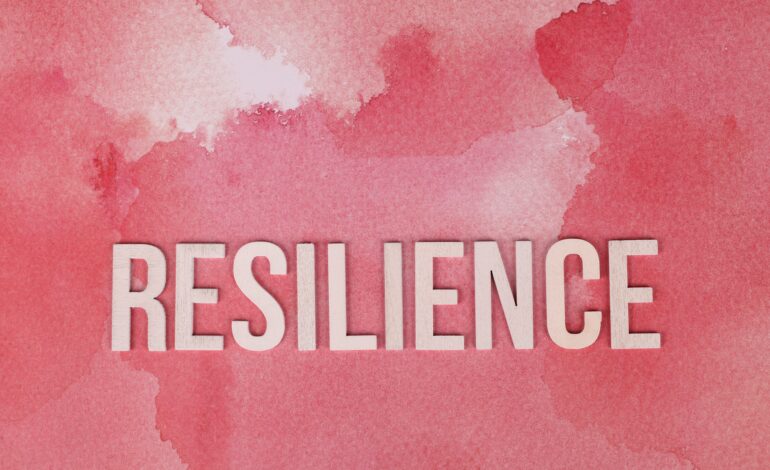
Adversity is an inevitable part of life. Everyone experiences challenges, and each of us has the capacity to be resilient—to bounce back from challenges and use them as opportunities for growth. We all experience challenges at different times in our lives, from the loss of a loved one to an unexpected illness or injury. And while these events may feel overwhelming at the time, it’s important to remember that they don’t define you as a person.
The way you choose to handle them can shape who you are and influence how you approach future challenges. Building a resilient mindset can help individuals cope with adversity and overcome challenging situations. Here are some steps to build a resilient mindset:
Practice mindfulness
Mindfulness is the practice of being present in the moment and aware of one’s thoughts and feelings. By practicing mindfulness regularly, individuals can learn to observe their thoughts and emotions without judgment, which can help them manage difficult situations more effectively.
Being mindful means focusing on your thoughts and feelings instead of reacting to them. It’s a way of taking a step back from your emotions so you don’t react in the heat of the moment. This is an important skill to have when you’re facing stress or anxiety because it allows you to recognize when you’re feeling these emotions, so that you can respond in a healthy way instead of reacting impulsively or aggressively.
Cultivate a growth mindset
If you’re new to the concept of a growth mindset, you’re not alone. It’s a pretty new concept in psychology, but it’s already becoming more and more popular. A growth mindset is the belief that your abilities can be developed through hard work and learning. Individuals with a growth mindset are more likely to persist in the face of challenges and setbacks, and they view failure as an opportunity to learn and grow. It’s easy to see why this is such an important concept: if we have a growth mindset, we are more likely to keep trying when things get difficult. And what could be more important than that?
Build strong relationships
Social support is crucial for building resilience. Strong relationships with friends, family, and other supportive individuals can help individuals cope with adversity and provide them with the emotional support they need to overcome challenges. A person’s social relationships can affect their ability to cope with stress. People who have a strong social support network tend to experience fewer negative effects from stressful experiences than people who are socially isolated.
Take care of physical health
Exercise is an important part of taking care of your body and your mental health. When you exercise, you release endorphins, which are hormones that make you feel good. You also get the added benefit of a stronger heart and healthier lungs. Healthy eating can help you manage stress and build resilience to adversity. When you eat healthy foods, like fruits and vegetables, you give your body the fuel it needs to run efficiently. This can help reduce feelings of depression, anxiety, and/or irritability—which are all symptoms of stress!
Adequate sleep is also important for building resilience. If you’re tired all the time or find yourself falling asleep in class or at work because your mind is racing with thoughts about what happened during the day or what might happen tomorrow—or even just because there’s so much going on that it feels like there isn’t enough time in the world for everything—you may need more sleep than average people do!
Learn from past experiences
Reflecting on past experiences and learning from them can help individuals build resilience. By understanding how they have coped with challenges in the past, individuals can develop strategies for managing future challenges. The first step to building resilience is to identify the challenges you face and how you respond to them. You may be able to draw on past experience to identify some of these challenges and how they were overcome. You might also want to think about what was helpful or not helpful in your response to these challenges.
For example, if you are faced with a difficult situation at work, ask yourself what happened when you faced similar situations in the past? How did you handle it? What made it more difficult or easier than expected? Was there anything that would have made it easier? You can also look at your emotional responses when facing such situations: Were there any changes in how you felt about yourself, others or the situation? What helped at those times?
Practice positive self-talk
Positive self-talk is a powerful tool that can help individuals develop a more optimistic and resilient mindset. People often talk to themselves in ways that are negative and unproductive, which makes it harder for them to cope with difficult situations. When individuals develop positive self-talk habits, they will be able to view problems in a more positive manner and approach challenges with more confidence.
Positive self-talk involves reinforcing positive thoughts about yourself and your abilities. It’s important to remember that you are not your thoughts or actions; what matters most is how you respond to those thoughts and actions. In order to develop positive self-talk habits, try using the following strategies:
- Identify when you’re being negative
- Identify the negative thought or belief behind your behavior
- Ask yourself whether this thought or belief is true or helpful for achieving your goals
- Replace the negative thought with a positive one (e.g., “I’m going to fail this test” becomes “I studied hard for this test”)
Seek help when needed

Finally, it’s important to recognize when help is needed and to seek support from a mental health professional or other healthcare provider when necessary. Asking for help is a sign of strength, not weakness, and can help individuals build resilience and overcome adversity. It’s also crucial that those around us know how to respond when we’re struggling with mental health issues. This means being understanding and compassionate, listening without judgment, and offering encouragement instead of criticism or blame.
RUCHI RATHOR Founder & CEO
Payomatix Technologies Pvt. Ltd.
FOUNDER AND INVESTOR | PAYMENTS PROCESSING EXPERT | MERCHANT ACCOUNT SOLUTIONS | WHITE LABELLED PAYMENT GATEWAY | Dreamer, Creator, Achiever, Constantly Evolving
Website Ruchi Rathor: https://ruchirathor.com
Website Healing Heart https://thehealingheart.me/
Instagram https://www.instagram.com/_ruchirathor_/
LinkedIn https://www.linkedin.com/in/ruchirathor12/
Facebook https://www.facebook.com/ruchi.rathor.magnificient
Tumblr https://www.tumblr.com/blog/ruchirathor-thehealingheart
Medium https://medium.com/@ruchirathor_23436









